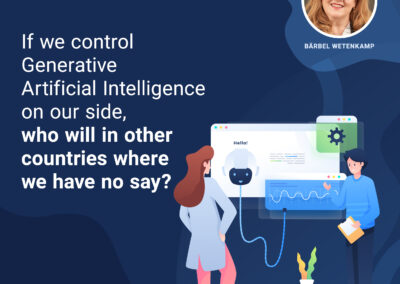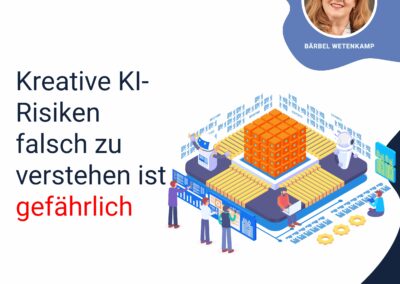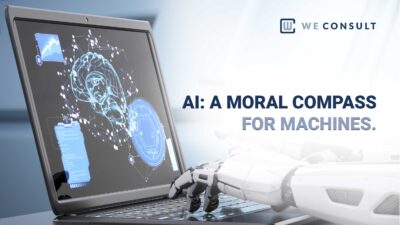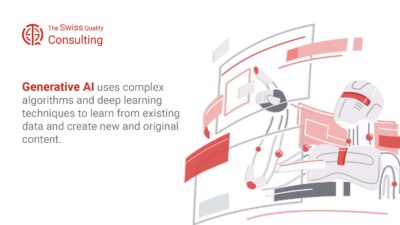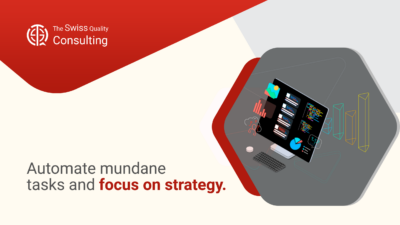Reducing the Risks of Creative AI: A Crucial Task for Today’s Business Leaders
In today’s rapidly evolving business landscape, the integration of Generative Artificial Intelligence (AI) has become a focal point for innovation and competitiveness. “Die Minderung von Kreative KI-Risiken ist entscheidend” – Reducing the risks of creative AI is crucial. This statement encapsulates a fundamental challenge faced by business executives, mid-level managers, and entrepreneurs alike.
The Imperative of Risk Management in AI Adoption
Understanding the Stakes: The incorporation of Generative AI into business processes is a monumental shift in the corporate landscape, offering immense potential for enhancing various aspects of business operations. This advanced technology can dramatically improve efficiency, foster creativity, and expand market reach, providing businesses with powerful tools to innovate and stay ahead in a competitive market. Generative AI has the capability to revolutionize sectors such as marketing, customer service, and product development, enabling personalized customer experiences and more efficient business strategies.
However, the integration of Generative AI is not without its challenges. There are significant inherent risks that businesses must consider and manage effectively. One of the primary concerns revolves around ethical implications. As AI systems become more capable of generating realistic and persuasive content, the lines between human and machine-generated communications can become blurred, raising questions about authenticity and trust. This issue is particularly pertinent in sectors where transparency and trust are paramount, such as finance and healthcare.
Data privacy is another critical concern. Generative AI systems often require large amounts of data to function optimally. This raises significant questions about how this data is sourced, stored, and used, especially in light of stringent data protection regulations like the GDPR. Businesses must ensure that their use of AI aligns with legal standards and respects customer privacy.
Furthermore, there’s the risk of potential misalignment with customer values. AI-generated content or decisions may not always resonate with a company’s target audience or may inadvertently reflect biases present in the training data. This misalignment can lead to customer dissatisfaction, brand damage, or even legal challenges.
Navigating these risks requires more than just technical expertise; it demands a strategic approach. Astute leadership and effective management skills are essential in steering a company through the complexities of AI integration. Leaders must be knowledgeable about the capabilities and limitations of AI, ethical considerations, and legal requirements. They must also foster a culture of continuous learning and adaptation, ensuring that their teams are equipped to handle the evolving landscape of AI technology.
In essence, the journey towards harnessing the power of Generative AI in business is a balancing act. Companies must be agile enough to exploit the benefits of AI, while also being vigilant and strategic in managing the associated risks. This requires a blend of technological insight, ethical consideration, and strategic foresight – a combination that will define the leaders in the next wave of business innovation.
Strategic Approaches to AI Risk Management
Effective management of AI risks involves a comprehensive understanding of the technology, its capabilities, and its limitations. Leaders must foster a culture of responsible AI use, ensuring that AI-driven initiatives align with the core values and ethical standards of their organization.
Generative AI in Change Management and Executive Coaching
In the context of change management, Generative AI presents both opportunities and challenges. Leaders must guide their organizations through the adoption of AI, addressing concerns and expectations of stakeholders while optimizing the benefits of AI.
Executive Coaching for AI Leadership: Executive coaching services play a pivotal role in preparing leaders for the AI era. Coaching can provide executives with the insights and tools needed to effectively integrate AI into their strategic planning, ensuring that they are well-equipped to handle the complexities and dynamics of AI-driven change.
Leveraging AI for Effective Communication and Business Success
Generative AI has the potential to revolutionize business communication, offering new ways to engage customers and personalize experiences. However, leveraging this technology requires a keen understanding of its impact on communication dynamics. Businesses must ensure that AI-augmented communications are transparent, ethical, and in line with the expectations of their audience.
Building Trust in the Age of AI
Building and maintaining trust is critical in an AI-driven business environment. This involves clear communication about the use of AI, its benefits, and its limitations, ensuring that stakeholders are informed and confident in the business’s use of technology.
#GenerativeAI, #BusinessLeadership, #AIinBusiness, #RiskManagement, #ChangeManagement, #ExecutiveCoaching



